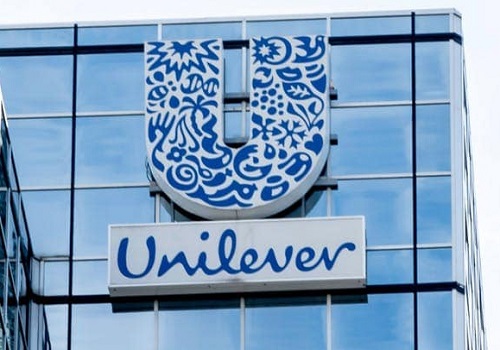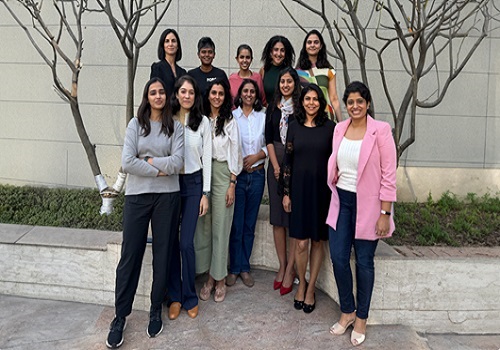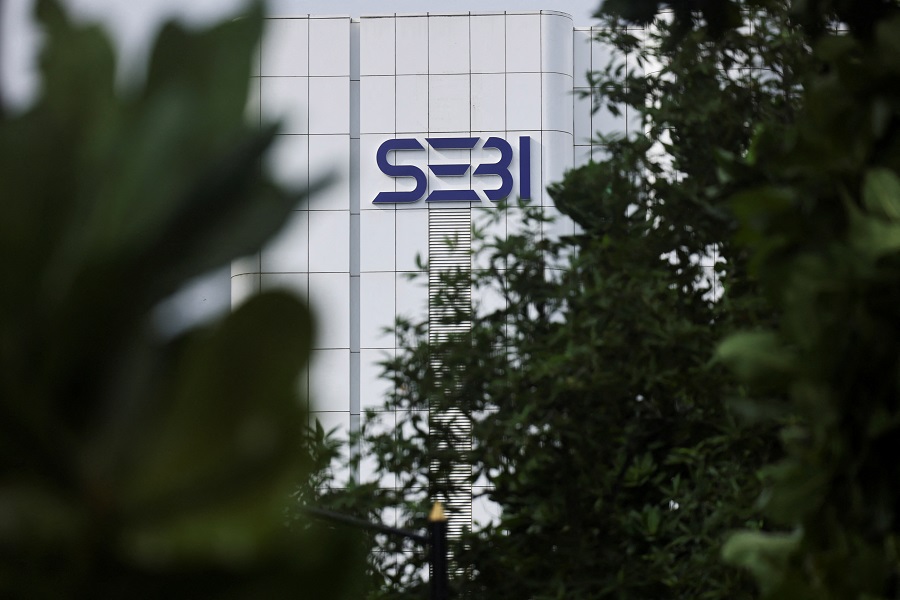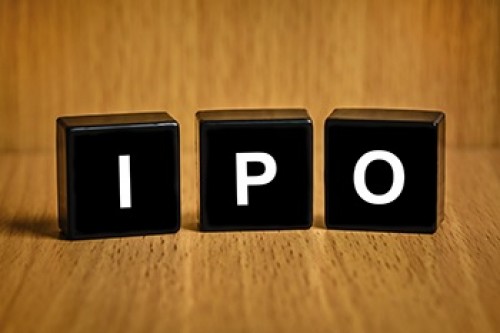Nephro Care India coming with IPO to raise Rs 41.26 crore

Nephro Care India
- Nephro Care India is coming out with initial public offering (IPO) of 45,84,000 shares of Rs 10 each in a price band Rs 85-90 per equity share.
- The issue will open for subscription on June 28, 2024 and will close on July 2, 2024.
- The shares will be listed on NSE Emerge Platform.
- The face value of the share is Rs 10 and is priced 8.50 times of its face value on the lower side and 9.00 times on the higher side.
- Book running lead manager to the issue is Corporate Capital ventures.
- Compliance Officer for the issue is Sougata Sengupta.
Profile of the company
Nephro Care India was founded in the year 2014 in Kolkata with an object of providing comprehensive medical services for renal patients. The company is a one stop treatment centre based in Kolkata that offers a wide range of clinical and lifestyle solutions and services and renal insufficiency treatment to patients. The treatment framework covers the entire range of lifestyle, physiological and spiritual aspects of wellness. The operations of Nephro Care are supported by a pool of expert Doctors, experienced and well-trained paramedical professionals and a skilled management team. The entire team at Nephro Care is supported by sufficient clinical and investigative infrastructure. At Nephro Care treatment regimens are planned and practiced on the basis of core scientific understanding, transparency and ethics.
Initially the company’s offerings were limited to dialysis and renal OPD services delivered through 3rd party facilities of hospitals like Sahid Khudiram Bose Hospital, Fleming Hospital and Dreamland Hospital. Hence, till November 2021, the company’s earnings were limited to only the share of revenue agreed upon between the 3rd party facility owner and the company. In December 2021, the company set up its own daycare unit at JC-18, Salt Lake with facilities for offering a wide range of services.
Its vision is to reach out to the masses through a holistic approach combining modern medicine with time tested yogic wisdom to touch the lives of one million kidney disease patients across the country by leveraging its hub-and-spoke model. Its clinics are equipped with technologically advanced equipment and diagnostic instruments. It has a wide spec of diagnostic facilities to provide its doctors freedom to explore all diagnostic possibilities and offer its patients a better service and care under one roof and to also ensure optimum clinical outcomes.
Proceed is being used for:
- Setting up of Multi Speciality Hospital in the name of ‘Vivacity Multi Specialty Hospital’ (unit of Nephro Care) at Madhyamgaram, Kolkata, West Bengal.
- General corporate expenses.
Industry overview
The healthcare industry value chain in India includes hospitals, medical devices, clinical trials, outsourcing, telemedicine, medical tourism, health insurance and medical equipment. The healthcare sector is growing at a brisk pace owing to its strengthening coverage, services, and increasing expenditure by public as well private players. The hospital industry in India, accounting for 80% of the total healthcare market, is witnessing a huge investor demand from both global as well as domestic investors.
The hospital industry is expected to reach $132 billion by 2023 from $61.8 billion in 2017, growing at a CAGR of 16-17%. India ranked 10th in the Medical Tourism Index (MTI) for 2020-2021 out of 46 destinations of the world. The Indian Medical Tourism market size stood at around $6.79 billion in 2023 and is expected to reach $12.64 billion by 2028 (growing at a CAGR of 13.23%). The diagnostics industry in India is currently valued at $4 billion. The share of the organized sector is almost 25% in this segment (15% in labs and 10% in radiology). Around 1,60,000 Ayushman Bharat centers, which aim at providing primary healthcare services to communities closer to their homes, are operational in India.
With long term structural factors supporting growth, renewed impetus from PMJAY and government focus shifting onto healthcare sector, the healthcare delivery market in India is expected to grow at 10-12% compounded annual growth rate (CAGR) and reach Rs 8.6 trillion in fiscal 2027. From fiscal 2018 to fiscal 2022, major hospital chains have added supply (around 2-3% of their incremental supply during the period). The supply was affected during the Covid period as from fiscal 2020 to fiscal 2022, major hospital chains supply declined by around 1-2%. The government is expected to augment the supply of medical services via the Ayushman Bharat scheme which aims to create 1,50,000 Health and Wellness centers (more than 1,50,000 HWC's created till Dec 2022) for strengthening primary & secondary infrastructure in the country. The other contributors to the demand are more structural in nature, like, increase in lifestyle-related ailments, increasing medical tourism, rising incomes and changing demography.
Pros and strengths
Consistent Investments in medical technology and cutting edge machinery: It continuously invests in the latest medical technology and equipment and diagnostic instruments to provide its doctors, nurses and medical staff with all the tools they need to provide quality medical care as well as provide patients with accurate diagnoses and effective treatments. Its clinics are equipped with technologically advanced equipment and diagnostic instruments. It has a wide spec of diagnostic facilities to provide its doctors freedom to explore all diagnostic possibilities and offer its patients a better service and care under one roof and to ensure optimum clinical outcomes. It has in-house diagnostic tools including UGS, ECHO, ECG, X Ray, PFT, NCB, Fibroscan, Sudoscan, Fundoscopy, BCM, Polysomnography, Holter monitoring which ensure complete screening and accurate diagnosis.
‘Hub-and-spoke’ model with focus on quality patient care supported by modern infrastructure: Each of its clinics operates on a ‘hub-and-spoke’ model where each clinic is independent, individually well-equipped with skilled healthcare professionals as well as advanced infrastructure to serve the healthcare needs of the patients and ensure their rehabilitation. It operates all its clinics in line with its ‘patient first’ ideology, which primarily focuses on patient’s care, comfort, privacy and dignity. ITs Salt Lake Clinic has also been honoured with the ‘Award of Excellence from Health Conclave’ by Zee 24 Ghanta in 2022. It is also determined to provide healthcare services with high integrity and do not set any incentives that could compromise the quality of its services, such as financial targets for doctors.
Focus on clinical research and innovations: It is also focused on clinical research. Established in December, 2021, its clinical research facility supported by a dynamic and dedicated medical research team committed to advancing knowledge and innovation in the field of nephrology. At present, the team comprises two key members, a Senior Research Officer and a Clinical Research Coordinator. The primary purpose of the medical research team at Nephro Care is to comprehend, cultivate and investigate innovative concepts proposed by clinicians. The team collaborates with esteemed institutions in India, including the Indian Statistical Institute in Kolkata, Indian Institute of Technology, Kharagpur, and National Institute of Technology, Silchar, Assam, to leverage their expertise and resources in pursuit of cutting-edge research.
Risks and concerns
Dependent on flagship Salt Lake clinic: Its flagship Salt Lake clinic commenced operations in 2022, is its longest operating clinic, which has over the last 2 years, established a track record of clinical and operational expertise. Accordingly, it derives a significant portion of its revenue from operations from its flagship Salt Lake clinic. Almost 99% of its revenue from operation comes from its Flagship Salt Lake clinic for the period ended December 31, 2023, and for the year ended March 31, 2023 and March 31, 2022. Any material impact on its revenues from its clinics in Kolkata, including by reason of a reduction in patient footfall, regulatory changes, reputational harm, liabilities on account of medical negligence, adverse publicity or natural calamities and increased competition, could have a material adverse effect on its business, financial condition and results of operations.
Highly dependent on healthcare professionals: Its operations depend on the skills, efforts, ability and experience of its healthcare professionals including doctors and nurses at its clinics. There is no assurance that the attrition amongst its healthcare professionals will not increase in the future. its doctors work with it as consultants under various arrangements including on a fixed fee basis (fixed monthly remuneration), minimum consultation fee basis (remuneration is calculated based on number of visits and other services provided and includes a minimum fixed monthly remuneration) and pay-for-services model (remuneration is calculated based on number of visits and other services provided and does not include any fixed monthly remuneration), and are permitted to practice outside of its business and to work at clinics / hospitals that compete with the company. Additionally, some of its doctors may choose to join its competitors upon leaving us. Failure to attract and retain sufficient qualified healthcare professionals for its clinics could adversely affect the quality of its services and in turn affect its business, financial condition and results of operations.
Pricing regulations and related government reforms in the healthcare industry: The kidney healthcare sector in India is particularly vulnerable to the impact of pricing regulations and government reforms within the broader healthcare industry. Pricing regulations and related governmental reforms can significantly affect the accessibility and affordability of kidney-related treatments, including dialysis and transplantation procedures. Given the critical nature of kidney health services, any alterations in pricing regulations or reforms could lead to a substantial change in the revenue streams for companies operating in this sector. Moreover, the uncertainty surrounding the nature and timing of future governmental measures adds to the risk, potentially disrupting business operations and financial stability.
Outlook
Nephro Care India was founded in the year 2014 by Pratim Sengupta in Kolkata with an object of providing comprehensive medical services for renal patients. The company is a one stop treatment centre based in Kolkata that offers a wide range of clinical and lifestyle solutions and services and renal insufficiency treatment to patients. The treatment framework covers the entire range of lifestyle, physiological and spiritual aspects of wellness. The operations of Nephro Care are supported by a pool of expert Doctors, experienced and well-trained paramedical professionals and a skilled management team. The entire team at Nephro Care is supported by sufficient clinical and investigative infrastructure. On the concern side, it competes with hospitals, clinics, diagnostic chains and other healthcare service providers of varying sizes and specialties. Its competitors also include healthcare facilities owned or managed by government agencies and trusts, which may be able to obtain financing or make expenditure on more favourable terms than private healthcare facilities such as the company. It competes on the basis of factors such as specialties and other service offerings, quality of healthcare services and professionals, affordability, quality of care, patient satisfaction, brand and reputation.
The company is coming out with an IPO of 45,84,000 equity shares of face value of Rs 10 each. The issue has been offered in a price band of Rs 85-90 per equity share. The aggregate size of the offer is around Rs 38.96 crore to Rs 41.26 crore based on lower and upper price band respectively. On performance front, total revenue has increased by 399.14%, from Rs 342.44 lakh in the fiscal year ended March 31, 2022 to Rs 1,709.27 lakh in the fiscal year ended March 31, 2023. The increase in revenue was on account of increase in volume of patients. The company has reported net profit of Rs 194.24 lakh in the fiscal year ended March 31, 2023 as compare to net loss of Rs 0.98 lakh in the fiscal year ended March 31, 2022. Meanwhile, it is continually looking for value-accretive opportunities. Its goal will be to carefully increase its capacity in existing facilities as well as start new clinics in the state of West Bengal and Odisha, through an asset light model, while at the same time complement such expanded capacity with improved quality and efficiency of its healthcare services by providing cost-effective care through efficient systems, optimal utilization of processes, Information Technology, Research and Innovation and other resources.























